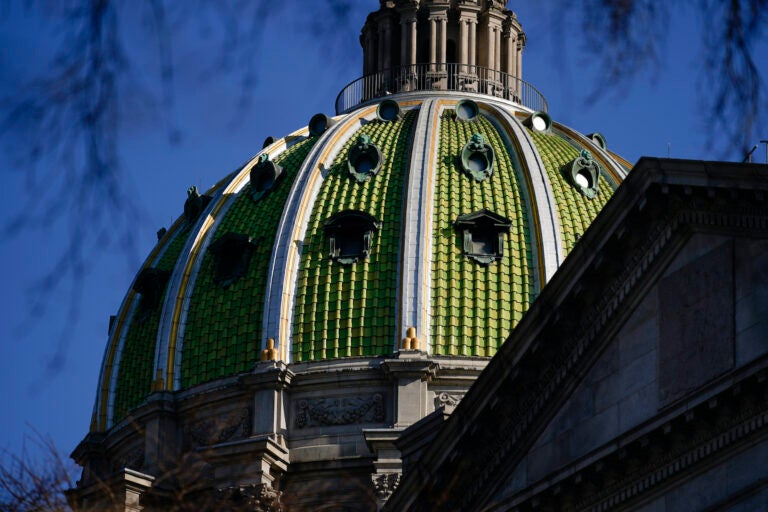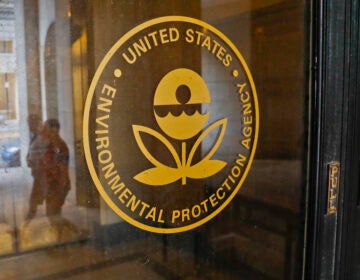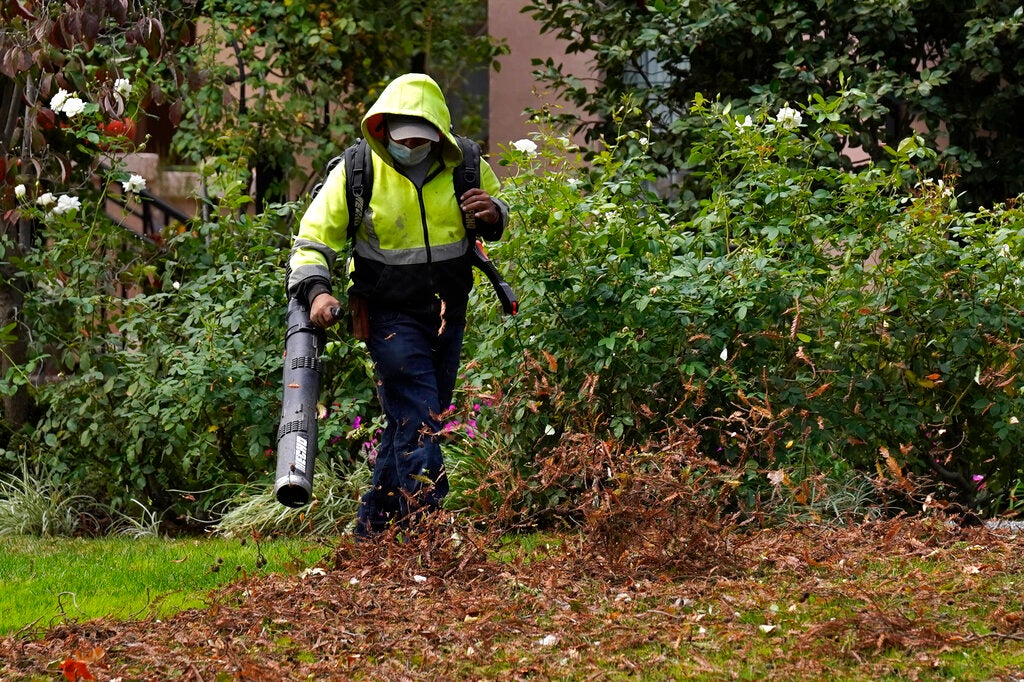Senate moves new bill to keep Pa. out of RGGI without General Assembly’s OK
Gov. Tom Wolf is trying to join RGGI through a regulation, which could be finished later this year. He vetoed a similar bill last year.

The Pennsylvania Capitol in Harrisburg, Pa., Monday, March 22, 2021. (Matt Rourke/AP Photo)
This article originally appeared on StateImpact Pennsylvania.
—
State lawmakers are advancing a new attempt to prevent the commonwealth from joining a regional cap and trade program targeting power plant emissions.
The Senate Environmental Resources and Energy Committee on Tuesday passed Senate Bill 119 along party lines. The measure requires legislative approval to enter a program that puts a price on carbon emissions, like the Regional Greenhouse Gas Initiative (RGGI).
Gov. Tom Wolf is trying to join RGGI through a regulation, which could be finished later this year. He vetoed a similar bill last year.
The vote marks the second move within a week by Senate Republicans to try to keep Pennsylvania out of RGGI. Last week, they told Wolf they wouldn’t approve his nominations to the Public Utility Commission unless he backed off RGGI. He said he wouldn’t.
Sen. Gene Yaw (R-Lycoming) called joining a superficial, feel-good effort that will have little impact on global emissions.
“We’re hurting ourselves. We’re shooting ourselves in the foot — why? Just because we’re not looking at the big picture,” Yaw said.
Many Republicans and some Democrats are opposed to RGGI because it will likely hasten the decline of coal-fired power plants and could hurt surrounding communities. Opponents also say it will raise electricity rates. Department of Environmental Protection modeling projects a slight increase in prices in the first years of RGGI.
Supporters say RGGI is an important way for the state to address climate change that could help the overall economy. They point to the 11 northeastern states in RGGI that have cut emissions from the power sector faster than the rest of the country, while their economies grew.
Sen. Carolyn Comitta (D-Chester) noted coal jobs are already disappearing.
“Coal fired plants are not closing because of RGGI, but due to competition from natural gas,” she said. “Meanwhile, we’re not doing anything yet to help transition those jobs to clean energy.”
DEP expects the program to bring in $300 million in the first year. Wolf has proposed using some of the revenue to help affected areas.
Sen. Lisa Boscola (D-Lehigh) voted no on the bill and said, while she’s inclined to join RGGI, she doesn’t think executive action is the right course.
“If Pennsylvania should join RGGI, it should be a commitment that cannot be undone by the actions of another governor,” Boscola said, adding uncertainty could cause problems for the electricity market and consumers.
She encouraged the governor to meet with caucus leaders in the House and Senate to find a path forward “that makes more sense.”

Get daily updates from WHYY News!
WHYY is your source for fact-based, in-depth journalism and information. As a nonprofit organization, we rely on financial support from readers like you. Please give today.






